ChatGPT’s Influence on Personalized Content Creation In the digital era, AI has significantly impacted our lives by revolutionizing different aspects. In terms of personalized content creation, one domain where AI’s effect is considerable is… Customizing content for specific audiences’ preferences, interests, and needs can considerably boost engagement. ChatGPT, created by OpenAI, is a notable
ChatGPT’s Influence on Personalized Content Creation
In the digital era, AI has significantly impacted our lives by revolutionizing different aspects. In terms of personalized content creation, one domain where AI’s effect is considerable is… Customizing content for specific audiences’ preferences, interests, and needs can considerably boost engagement. ChatGPT, created by OpenAI, is a notable player in the current content revolution. This article will study the realm of personalized content creation using ChatGPT and examine its potential for the future.
What is ChatGPT?
ChatGPT is a powerful AI language model created to recognize and produce human-like language. Using deep learning techniques, ChatGPT can comprehend natural language and generate accurate responses to a range of inputs. Training on large-scale text data has provided ChatGPT with unparalleled language comprehension abilities. The ability to do a variety of activities like question-answering, language modeling, and machine translation is a capability of this proficiency.
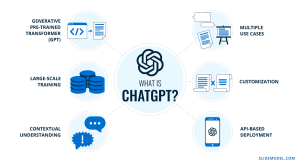
Image by: https://slidemodel.com/chatgpt-for-presentations/
Why is ChatGPT employed for producing customized content?
With its many applications, ChatGPT makes personalised material generation possible. Chatbots are one example of NLP in practice. Organizations may offer customized answers and information to consumers by utilizing ChatGPT in chatbots, based on their needs and interests. ChatGPT-powered chatbots help increase customer service interactions while also streamlining marketing and sales efforts.
ChatGPT has made significant progress in aiding content recommendation systems. By relying on information about users, these systems propose material that matches their taste. By monitoring the user’s prior internet history, ChatGPT can give tailored recommendations, such as news articles and videos.
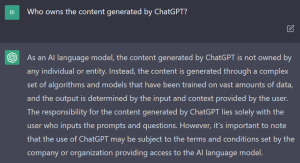
Image by: https://www.jdsupra.com/legalnews/chatgpt-who-owns-the-content-generated-2891692/
The topic of the future piece is personalized content generation with ChatGPT.
The potential of ChatGPT for personalized content creation is boundless, promising an array of transformative possibilities:
1. Real-time personalization: ChatGPT centers its attention on real-time personalization. ChatGPT can facilitate news websites in developing news pieces that cater to the preferences and interests of every user.
2. Improved customer engagement: Chatbots driven by ChatGPT foster better customer connection by supplying individualized replies to user inquiries. The research outcome is that clients are satisfied and loyal to the firm.
3. Enhanced marketing: ChatGPT-generated personalized marketing content can help companies establish a more profound bond with their intended audience, resulting in higher engagement and conversion rates.
4. Better content recommendation systems: ChatGPT’s capacity for generating customized and exact suggestions based on consumer behaviors and tastes promises to elevate material recommendation systems.
5. Customized learning: By fine-tuning ChatGPT’s education-related apps to suit each student’s specific needs, better educational results will be achieved.
6. Personalized healthcare: ChatGPT can produce tailored material for patients in the medical sector, taking into account their medical history and symptoms.
7. Improved content accessibility: ChatGPT’s multilingual abilities and ability to create content in various forms enable it to reach a broad spectrum of audiences. In particular, users with disabilities who cannot see benefit from automated text translation of pictures and videos or text descriptions of photographs and video clips.
8. Personalized financial advice: People can get personalised financial counsel from ChatGPT based on their financial background and objectives, leading to better judgments.
9. Customized product recommendations: Businesses can utilize ChatGPT to formulate personalized product suggestions by employing the consumers’ buying past and surfing customs, boosting revenue and customer happiness.
10. Improved content creation workflows: The automation capabilities of ChatGPT can simplify content creation by helping with generating outlines or summaries, saving valuable time for writers.
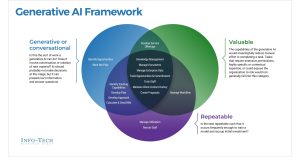
Image by: https://www.prnewswire.com/news-releases/the-future-of-chatgpt-and-generative-ai-in-the-enterprise-according-to-info-tech-research-group-301705286.html
Challenges and ethical considerations
While the potential of ChatGPT in custom content creation is promising, some concerns and ethical considerations need to be resolved. The training data should represent diverse perspectives in order to reduce bias. For personalized content, user consent and knowledge of their data usage are necessary. Besides that, the ethical and transparent utilization of personalized content creation in advertising and marketing is significant to prevent any manipulation or deception.
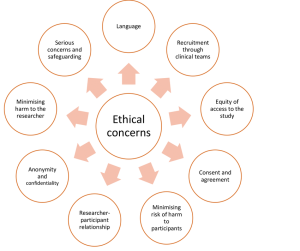
Image by: https://www.researchgate.net/figure/Ethical-issues-in-longitudinal-qualitative-research-for-children-and-families-in_fig1_322636984
Conclusion
ChatGPT’s role in making individualized material is unquestionable. It may enable the generation of tailored, live material, boost engagement with clients, and transform recommendation systems for content. This technology’s ethical problems should be identified and analyzed before one continues with it. The AI’s ethical and responsible application must be emphasised for producing customized content. Users and society would both benefit from AI-based personalization.

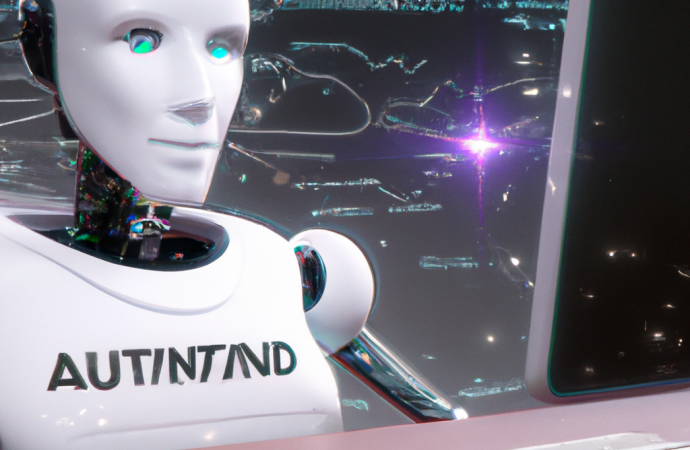















Leave a Comment
Your email address will not be published. Required fields are marked with *